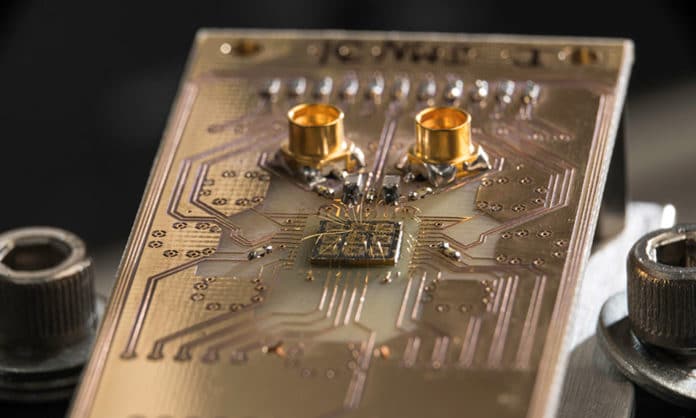Quantum computing, which relies on qubits, has the potential to revolutionize modern technology with more efficient computers, communication, and sensing devices. However, there are some challenges when it comes to effectively when it comes to transferring information in quantum systems.
In a new study, scientists at the University of Rochester have reported significant strides in improving the transfer of information in quantum systems.
In one study, scientists demonstrated a route of transferring information between qubits, called adiabatic quantum state transfer (AQT), for the first time with electron-spin qubits. AQT can improve the transfer of information between qubits, which is essential for quantum networking and error correction.
By exploiting entanglement, scientists demonstrated the effectiveness of AQT. Using AQT, scientists could transfer one electron’s quantum spin state across a chain of four electrons in semiconductor qubits. This is the longest chain over which a spin state has ever been transferred.
Due to the robustness of AQT against pulse errors and noise, it has significant applications in quantum computing.
In another study, scientists demonstrated another technique of transferring information between qubits. They did so by using time crystals, a strange state of matter in which interactions between the particles that make up the crystal can stabilize oscillations of the system in time indefinitely.
Scientists implemented a series of electric-field pulses on electrons to create a state similar to time crystal. They found that they could exploit this state to improve the transfer of an electron’s spin state in a chain of semiconductor quantum dots.
John Nichol, an assistant professor of physics and astronomy, said, “Our work takes the first steps toward showing how strange and exotic states of matter, like time crystals, can potentially be used for quantum information processing applications, such as transferring information between qubits. We also theoretically show how this scenario can implement other single- and multi-qubit operations that could be used to improve the performance of quantum computers.”
“These two results illustrate the strange and interesting ways that quantum physics allows for information to be sent from one place to another, which is one of the main challenges in constructing viable quantum computers and networks.”
Journal References:
- Haifeng Qiao et al. Floquet-enhanced spin swaps, Nature Communications (2021). DOI: 10.1038/s41467-021-22415-6
- Yadav P. Kandel et al. Adiabatic quantum state transfer in a semiconductor quantum-dot spin chain, Nature Communications (2021). DOI: 10.1038/s41467-021-22416-5
- Yadav P. Kandel et al. Coherent spin-state transfer via Heisenberg exchange, Nature (2019). DOI: 10.1038/s41586-019-1566-8
